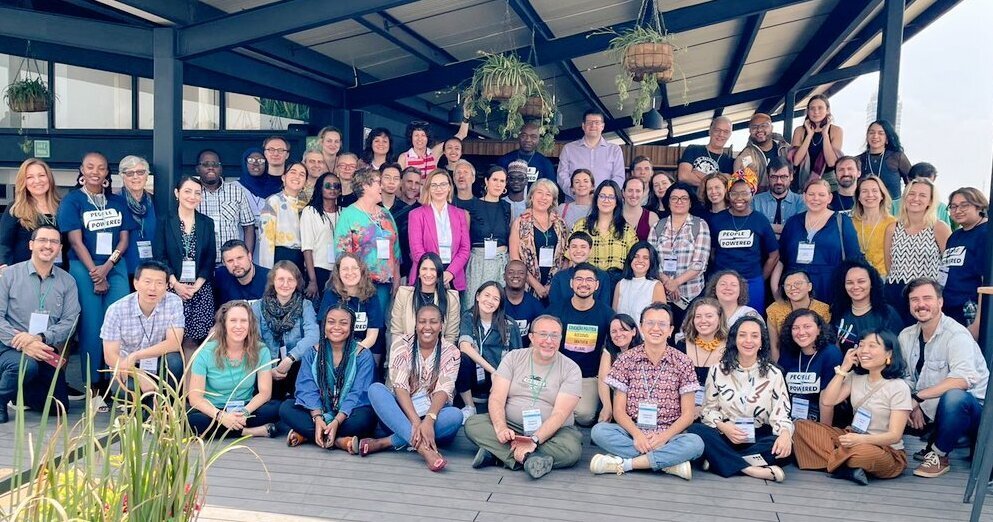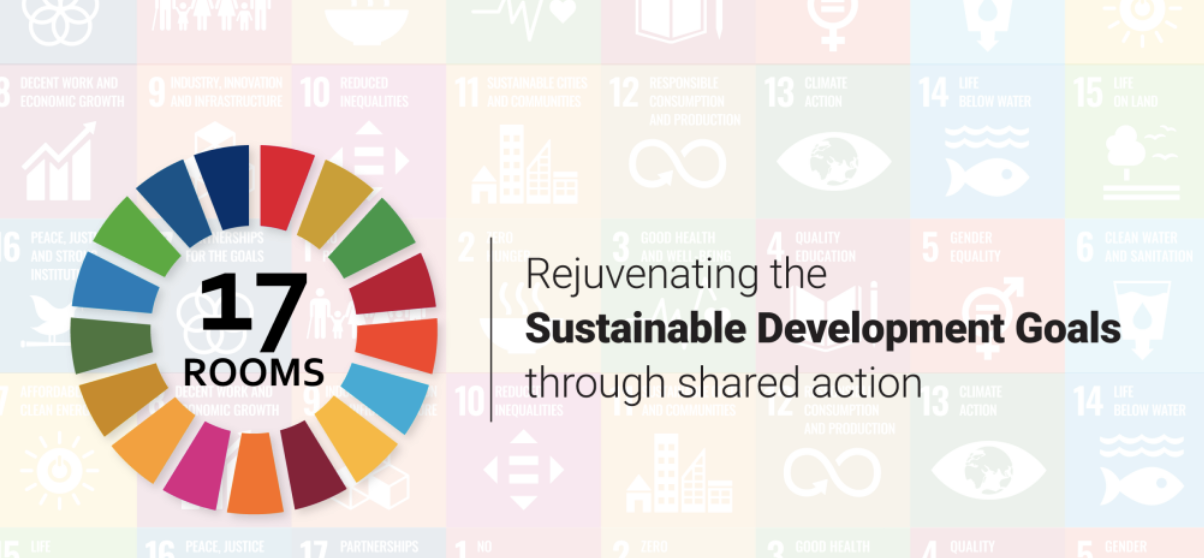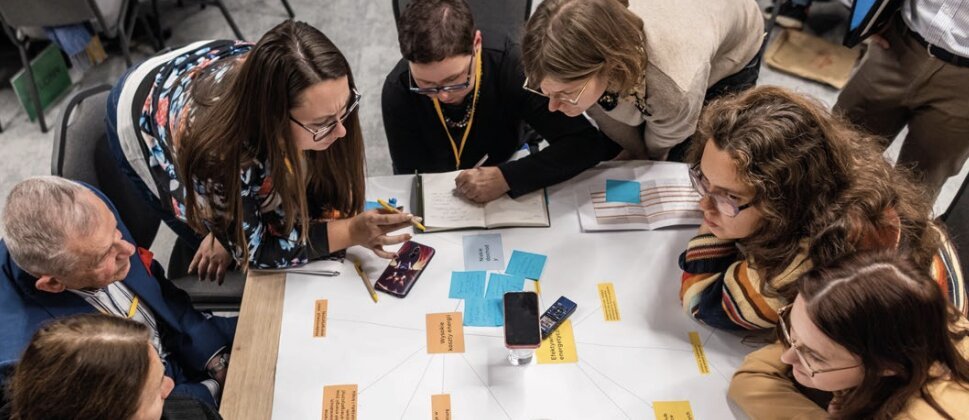June news: First member convening and three new programs
/In this month’s issue:
Member convening highlights
17 Rooms initiative
Two new accelerator programs
Citizens’ assemblies: what makes them transformative?
Disinformation: ignorance or lack of participation?
Three new staff members
Featured member: Shipyard Foundation
Featured resources
What we’re reading
Upcoming events
Funding opportunities
What to do
If you’d like to receive this newsletter via email, subscribe!
Members develop global resources and strategic plan at first in-person convening
The People Powered community met in person in May for the first time since the beginnings of the organization in 2019. We represented many different perspectives and contexts, but four shared goals: build stronger relationships, develop a shared understanding of the building blocks of participatory democracy, develop new global resources, and start drafting a new strategic plan.
And it was pure magic. We offer five examples.
Global ‘Room’ uses participatory democracy to advance SDGs
People Powered Executive Director Josh Lerner and board member Diana Dajer have been invited by the Brookings Institution and Rockefeller Foundation to lead one of its 17 “rooms” to accelerate progress on Sustainable Development Goal 16. The room brings together a cross-section of experts from a dozen international organizations to identify and advance targeted actions to institutionalize high-quality participatory and deliberative democracy. The first meeting of the initiative was held in Mexico City in May, and the prioritized actions will be shared in September.
Two accelerators now accepting applications: Get help with a climate or digital policy action plan
Do you want to launch a participatory program for climate action or digital policy, but need a little help? We’re now accepting applications for two additional accelerators! You can choose to focus on:
Public participation to mitigate or manage the changing climate. OR
More just and equitable policies governing the online world, including challenges ranging from disinformation to artificial intelligence. [Currently open only to those located in Europe.]
Selected participants will receive funding, free access to online training, expert mentoring and advice, and international peer-learning opportunities as they develop a project to launch a digital policy or climate-focused participatory program. Register for the orientation webinar, then apply by July 15!
Want to know more about how an accelerator works and the results of the first climate democracy accelerator (CDA) cohort? We summarize four of the grant-winning action plans in a post.
Citizens’ assemblies: What determines if they are ‘transformative’?
Citizens’ assemblies are becoming increasingly common in Europe and elsewhere, but what do we know about what makes them actually effective? Marjan Ehsassi, Future of Democracy Fellow at the Berggruen Institute, shares her insights into a question many practitioners don’t think too much about: Do participants in citizens’ assemblies find the experience beneficial? She shared here insights as part of one of our research-to-practice talks, prioritized by members when they voted on our budget last year.
Is disinformation a problem of ignorance or lack of participation?
Fake news seems to be prevalent everywhere, stoking partisan divides, casting doubt on the integrity of elections and even undermining public health. Two experts explain how participatory democracy can combat it in a new post. They shared their insights as part of one of our research-to-practice talks, prioritized by members when they voted on our budget last year.
Meet our three new team members
We’ve just hired a people and operations manager, climate democracy associate and communications coordinator! Learn about their diverse backgrounds, and their answers to some questions that are both fun and enlightening.
Poland’s Shipyard Foundation sees growing civic participation like ‘shipbuilding’
Shipyard was founded 15 years ago, when a new era was dawning in Poland, after the fall of the Soviet Union and the NGO sector was emerging. Its name represents the idea that we create ideas and processes, sort of like ships. Today, it has grown in many ways, including helping to organize citizens’ assemblies.
Effects of the internet on online participation: public policy referendum in Brazil. This research paper analyzes the profiles and engagement of online voters, showing that online voting increased participation among non-engaged people. [English]
Manual of participatory methods. This resource highlights a variety of participatory tools, with tips on how best to use them. [Spanish]
How Taiwan’s civic hackers helped find a new way to run the country. This article explores the use of digital participation platform Polis in Taiwan to build consensus on hot-button political issues. [English]
Three of our members wrote blog posts about their experience at our convening in Mexico City: Democratic Society, Pathways Policy Institute and Ollin.
Citizens’ juries can help fix democracy, Financial Times
June 15: Launch of the Multitudes Foundation (online)
June 27: Webinar: Apply to accelerate your climate and digital policy work (online)
June 27-29: Democracy Moves annual conference: Youth Redefining and Defending Democracy (online)
September 6-7: Open Government Partnership Global Summit, Tallinn (Estonia)
National Endowment for Democracy: grants to advance democratic goals and strengthen democratic institutions (deadline: June 7)
International Republican Institute: funding for proposals to sustain or scale existing digital democracy initiatives (deadline: June 16)
OpenAI: 10 $100,000 grants to fund experiments in setting up a democratic process for deciding what rules AI systems should follow, within the bounds defined by the law. (deadline: June 24)
Sign up for our webinar to learn more about two new accelerator programs.
Forward this email to colleagues interested in participation and democracy.
















